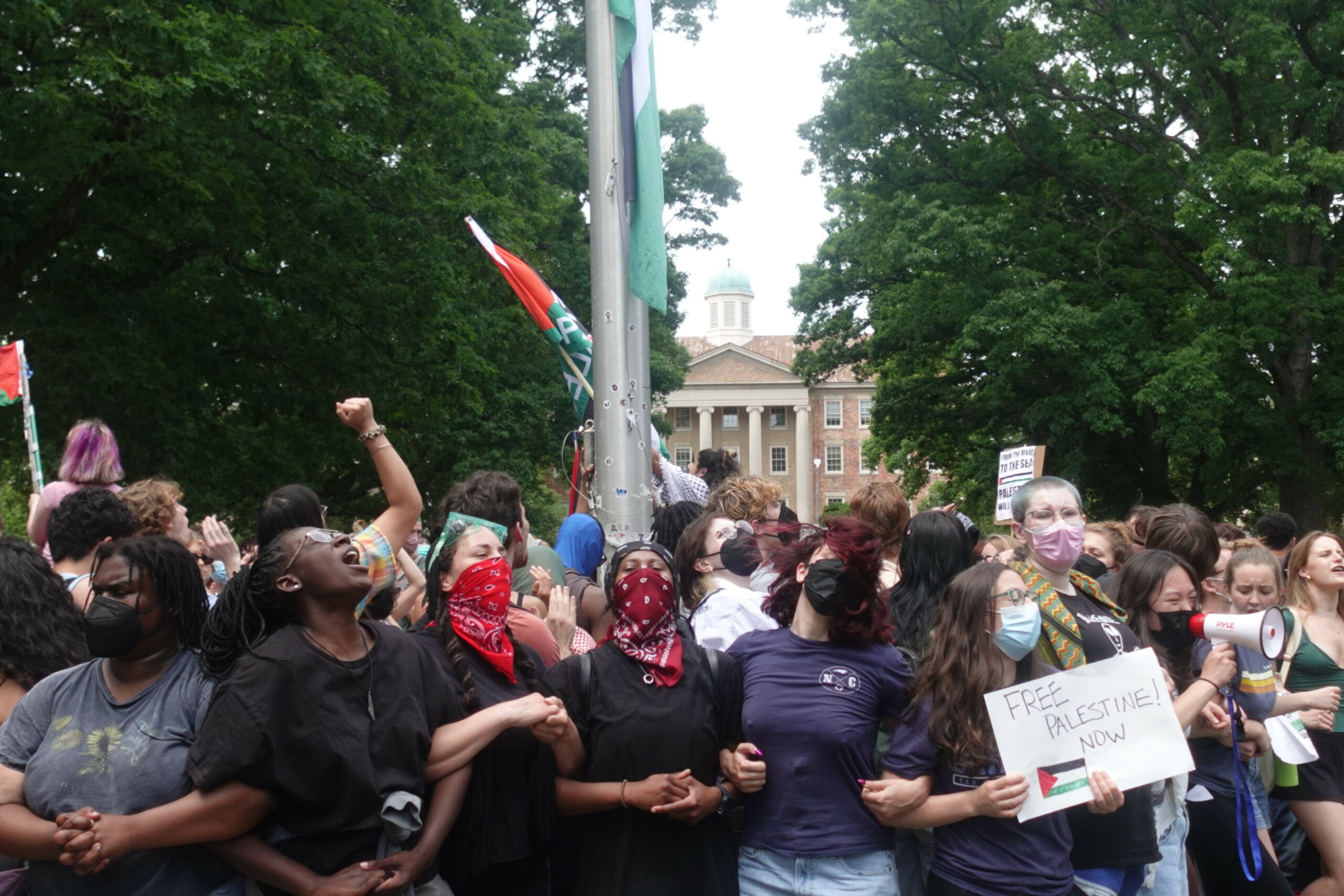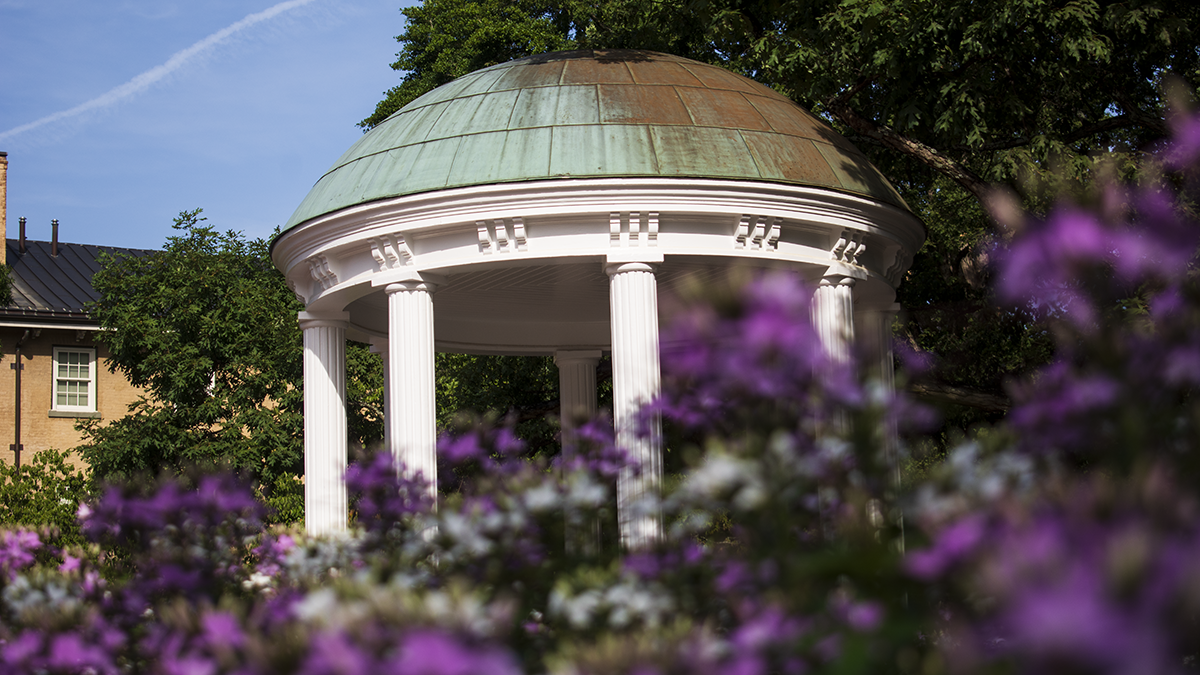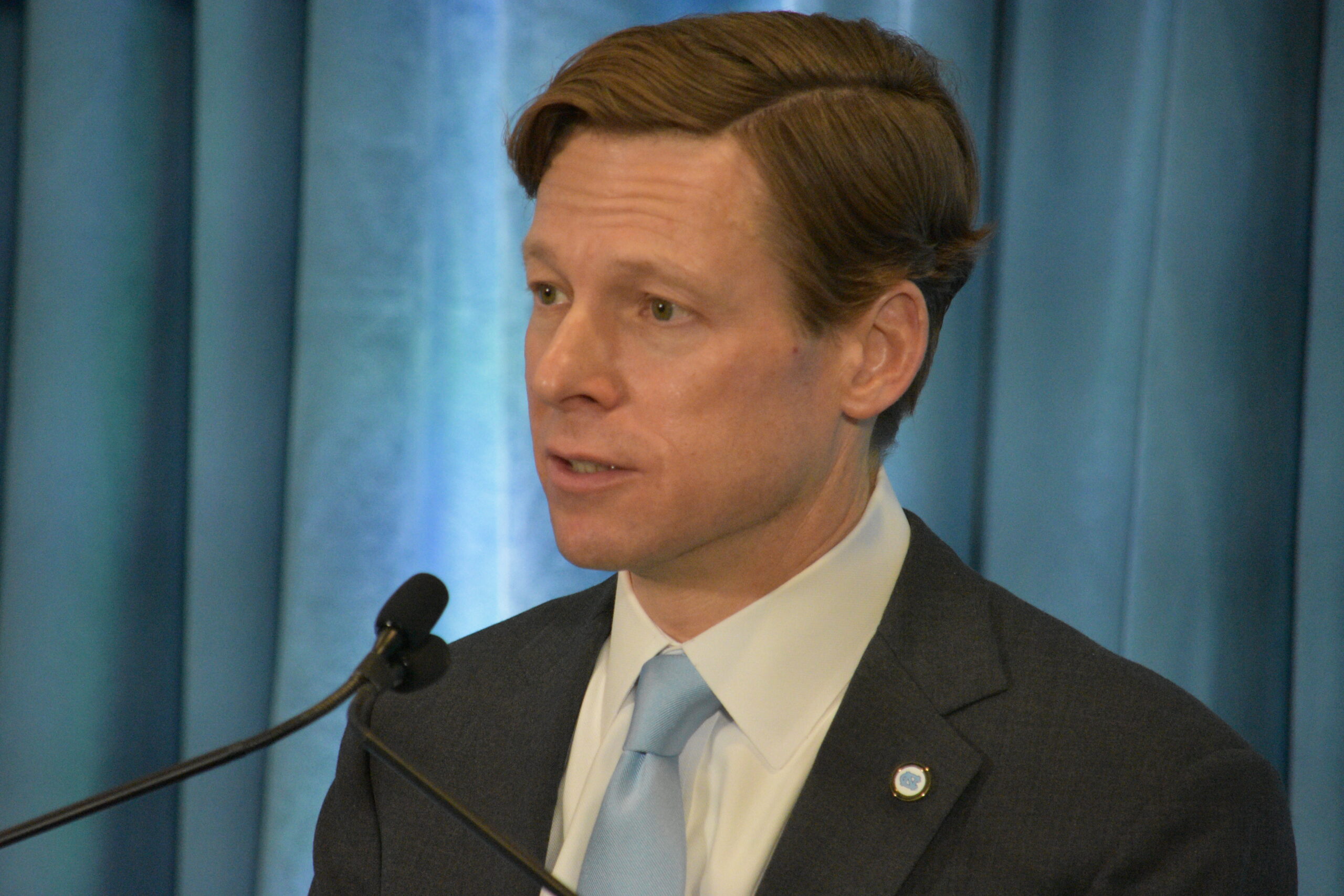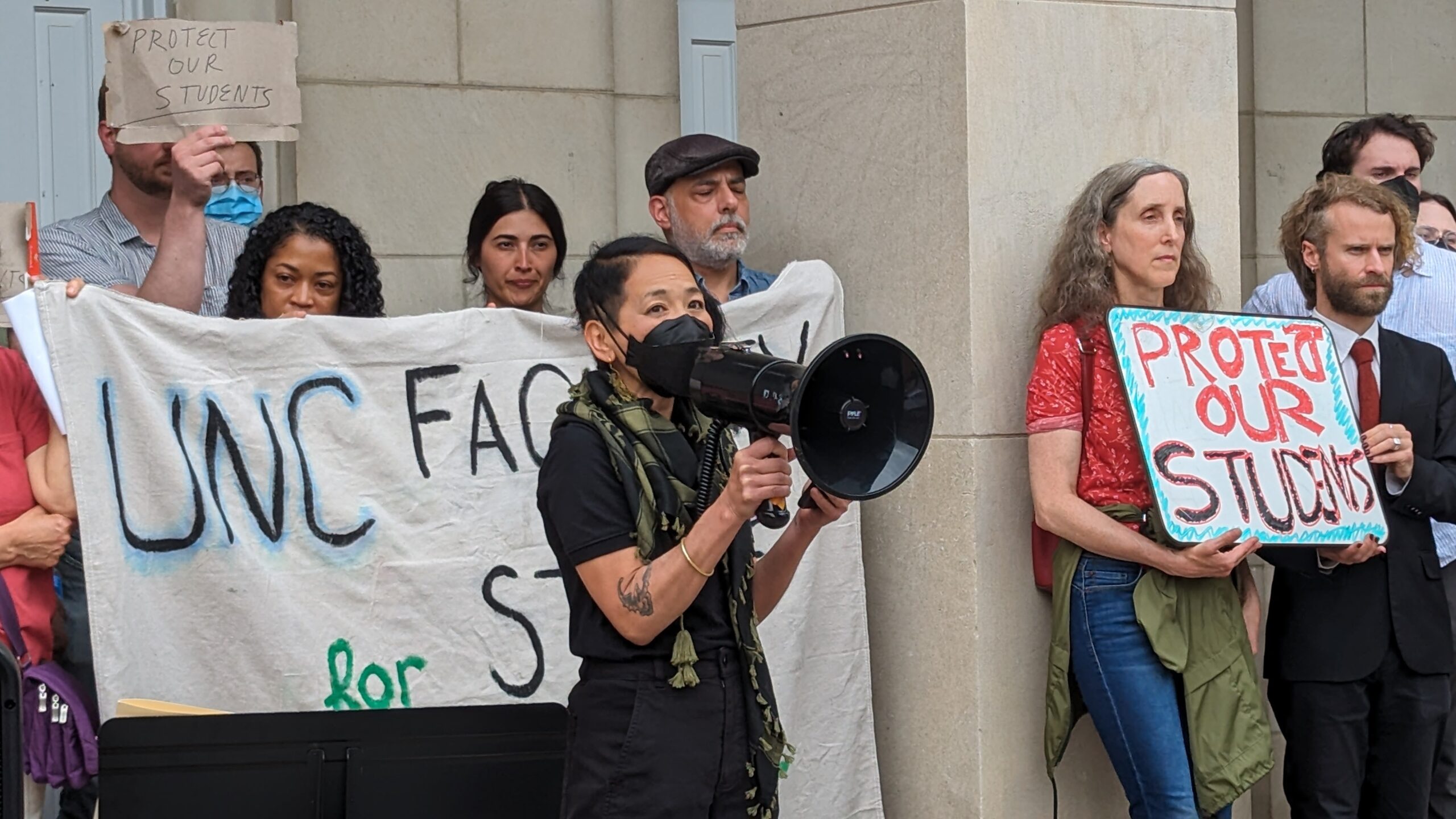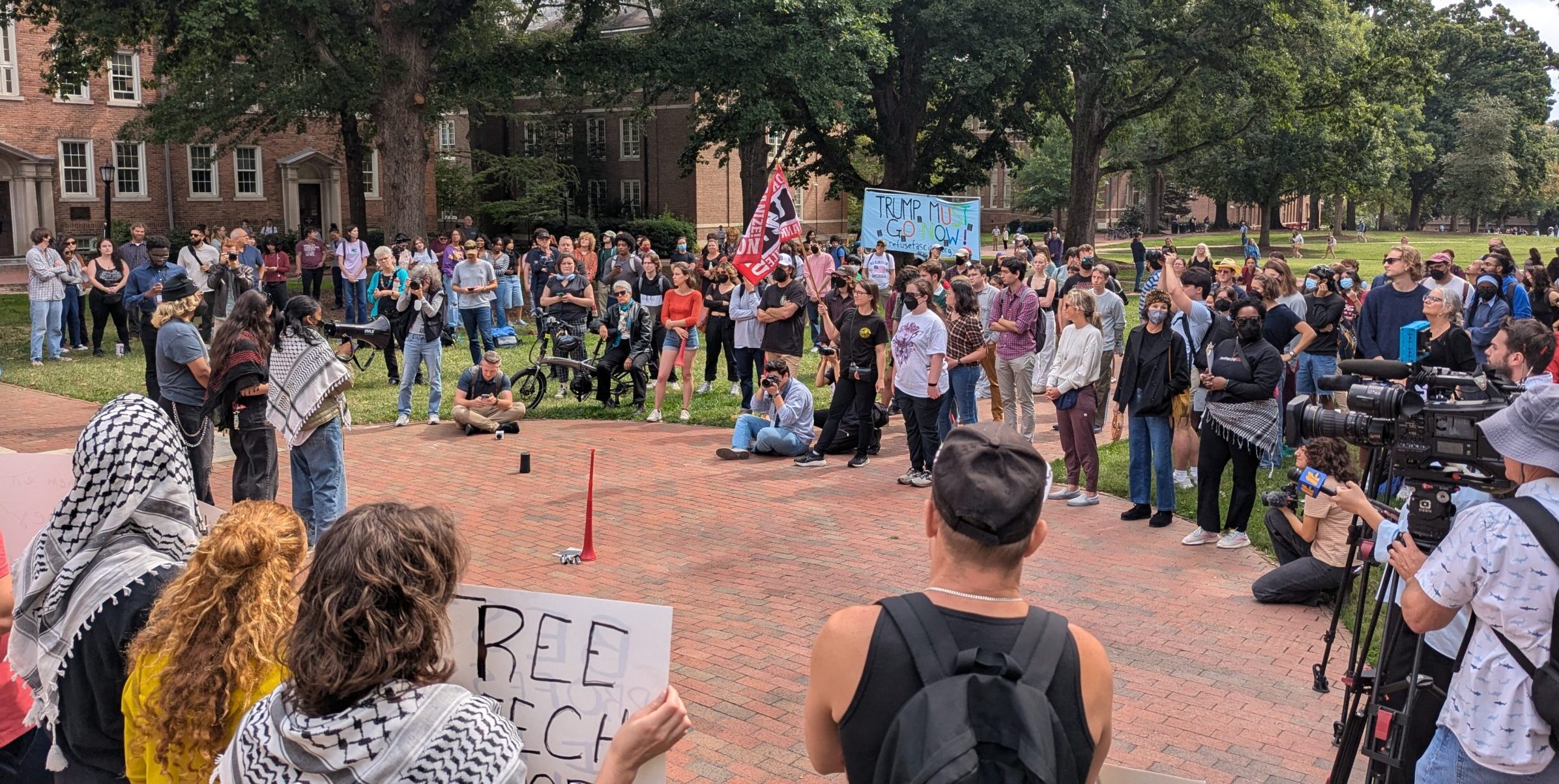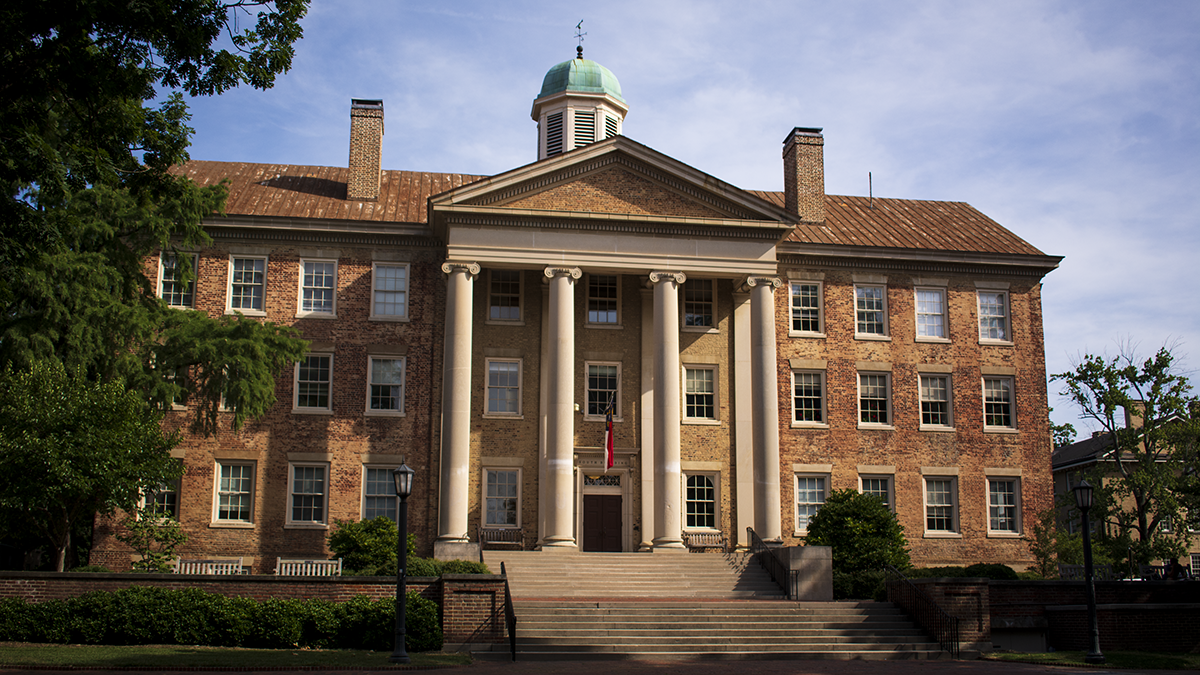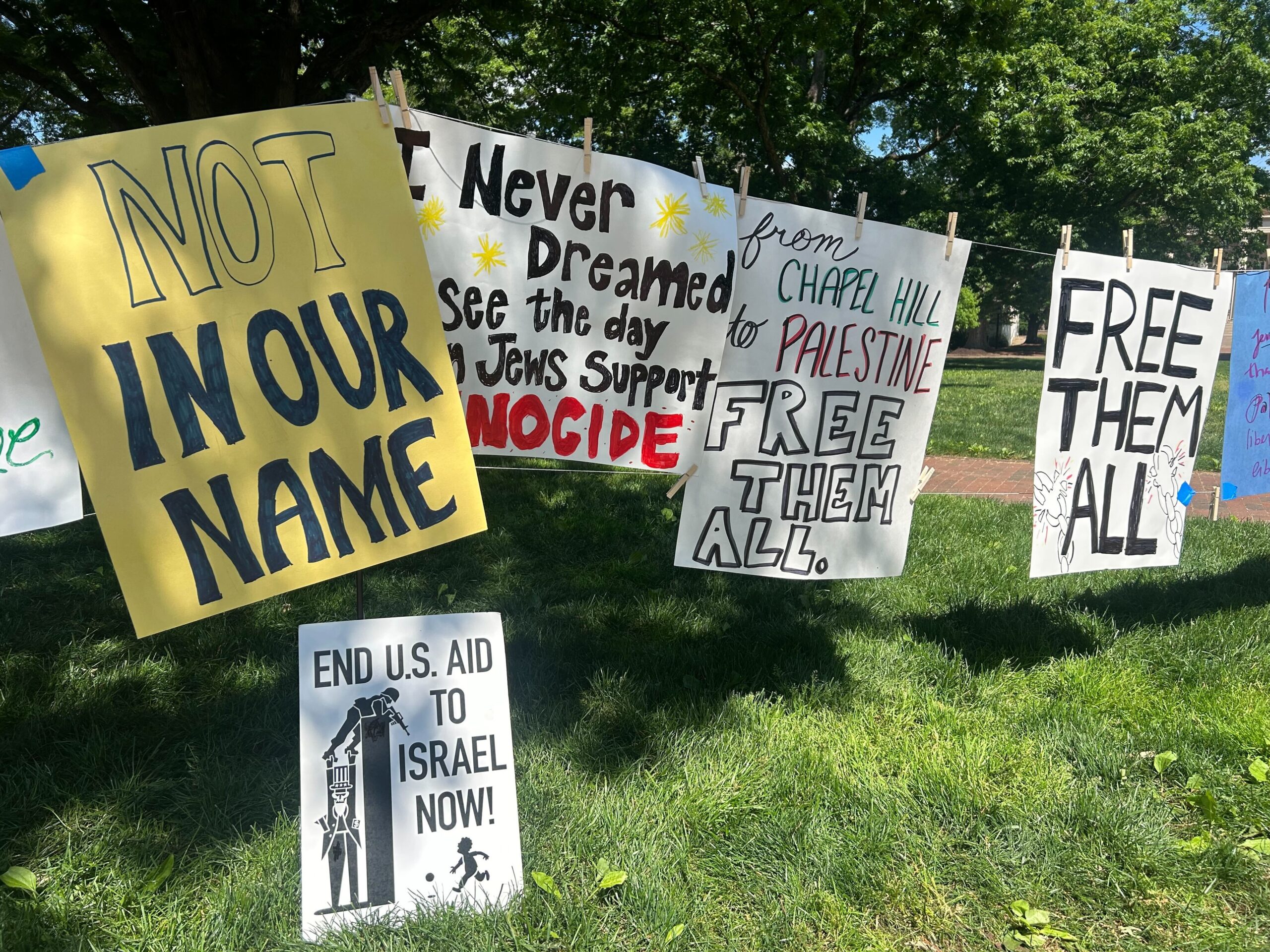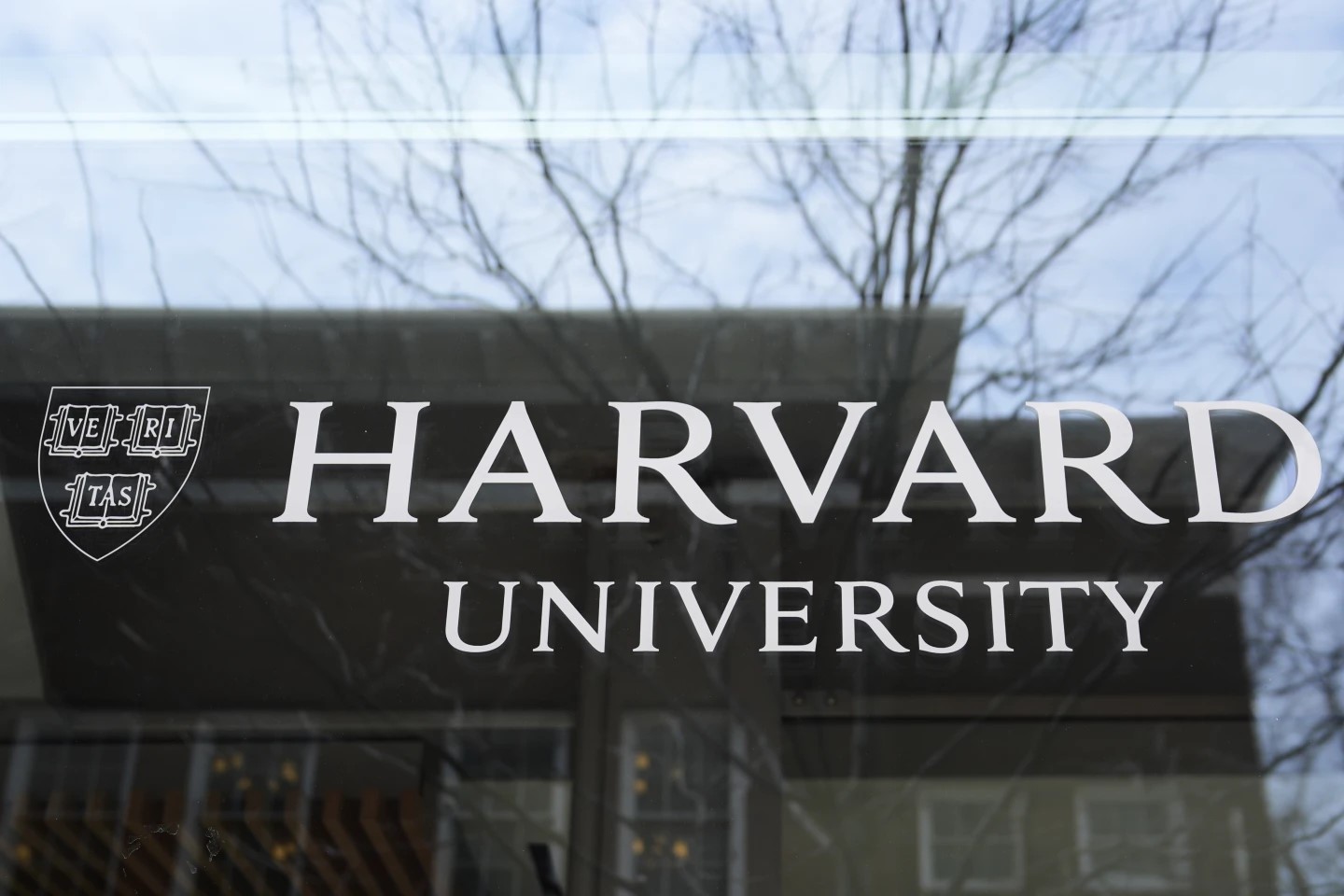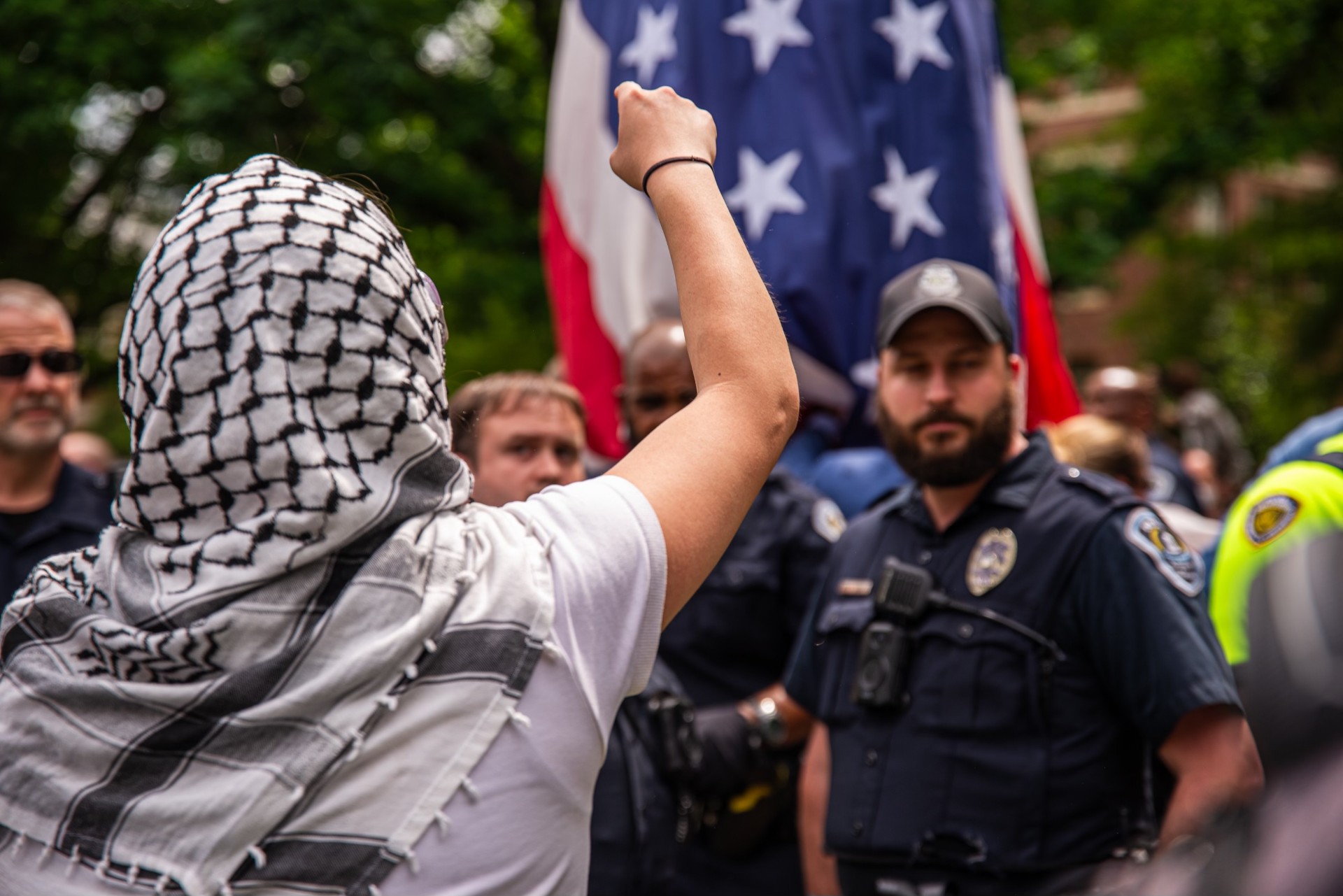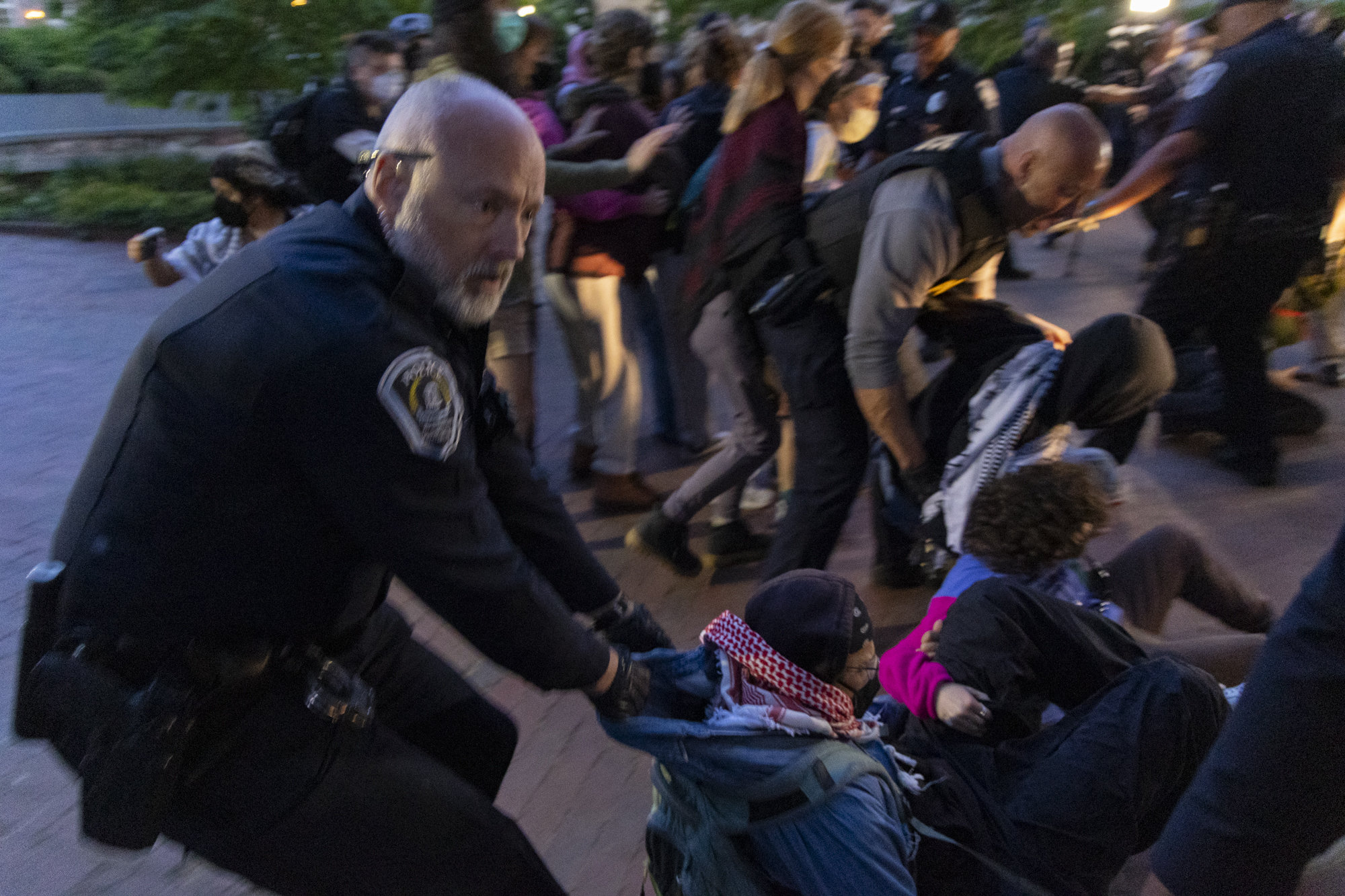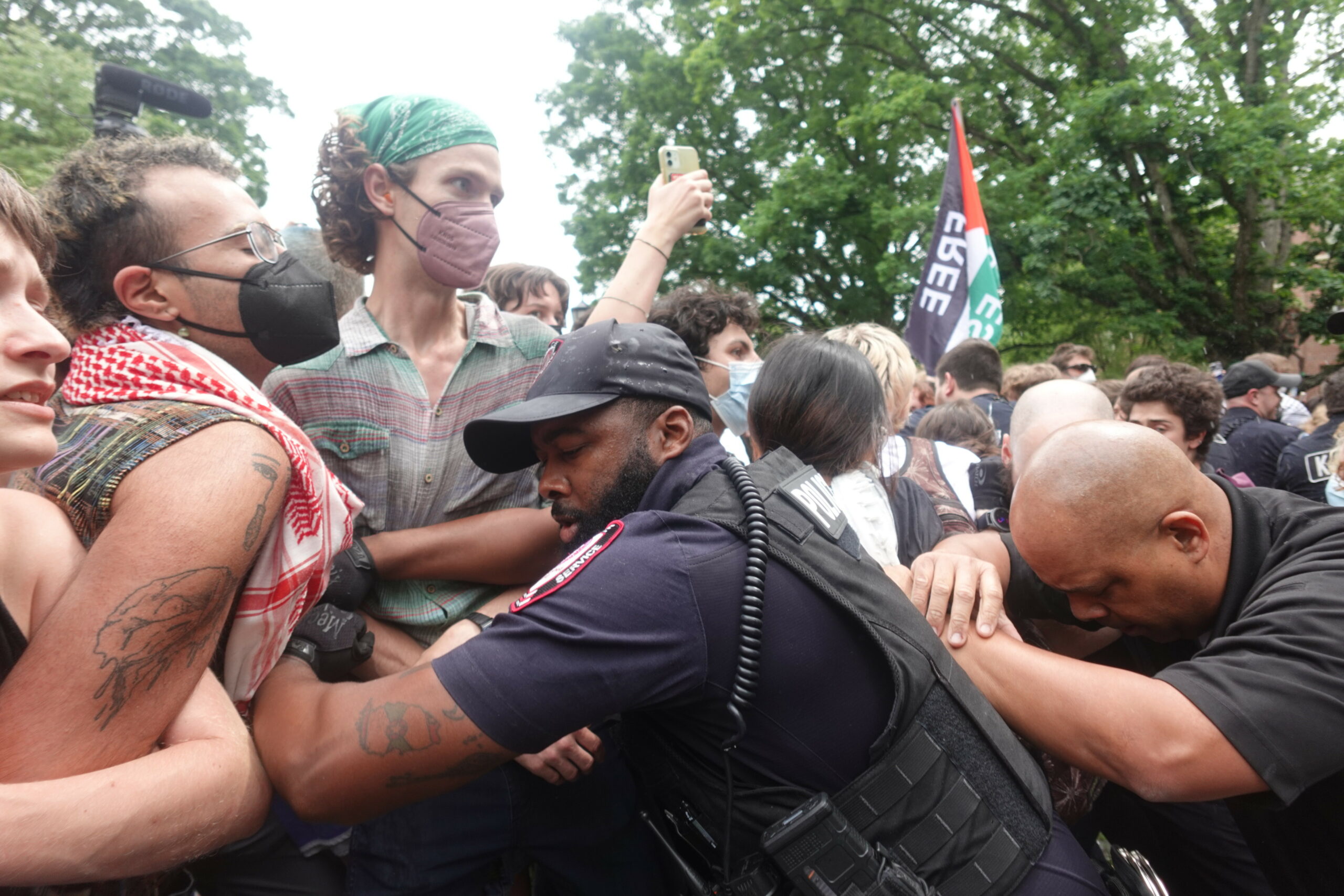As the university continues to adjust in the aftermath of both new directives from the country’s executive branch and a series of demonstrations on campus last school year, the UNC Board of Trustees approved a resolution at its latest meeting meant to strengthen its “zero-tolerance” approach to the disruption of operations and violence.
Board members unanimously approved the statement during their full meeting Thursday morning in Chapel Hill, which aims to reaffirm its existing policies and law enforcement for the sake of campus safety after several on-campus incidents where UNC officials report “violence masquerading as protected speech” took place. The measure also states UNC and the trustees’ intentions of complying with Title VI of the Civil Rights Act that prohibits discrimination based on “race, color, or national origins” amid President Donald Trump’s administration threatening funding cuts to higher education institutions that promote or emphasize racial diversity, equity and inclusion efforts.
The board’s action comes as the campus community approaches the first anniversary of an extended pro-Palestine encampment protesting the university’s ties to groups supporting Israel’s military action in Gaza — which developed into the overnight access of university buildings, arrests of demonstrators, and a violent clash between protestors and police at the campus flagpole. Since then, UNC law enforcement and leadership have also investigated vandalism to South Building and the Naval Armory building caused in the wake of similar protests. Thursday’s resolution referenced this, as well as other instances shared by university administrators of being directly threatened by people involved in such demonstrations.
“The Board’s expectation of such a zero-tolerance policy is necessary to ensure that every member of the UNC-Chapel Hill community is able to teach, learn, work, and travel without fear for their personal safety,” reads the statement. “Disruption of those activities, including the disruption of meetings of the Board of Trustees, constitutes an immediate violation of University policy even if the disruptors then choose to depart to avoid criminal arrest. Disruption alone is a material harm to the ability of the University to function.”
Chair of the Board of Trustees John Preyer said Thursday the resolution was championed and crafted in part by Trustee Marty Kotis, who he commended for working with UNC Chancellor Lee Roberts’ administration and the university’s general counsel to ensure its wording complied with laws and campus policies. Kotis also shared brief remarks during the full board meeting to stress the delineation between demonstrations that exercise free speech and actions that threaten the safety of the Chapel Hill school.
“When we talk about free speech — and we’re very much in favor of it — that’s very different from shouting people down and mob rule,” said Kotis. “I think sometimes those two concepts get conflated. And I think what this resolution does is…draw us a line, make sure we’re in compliance with Title VI, and addresses safety issues. People are entitled to share their words. But when they cross over into violence, property damage, and other actions like that — or if they shout down or disrupt university operations — that’s that line.”
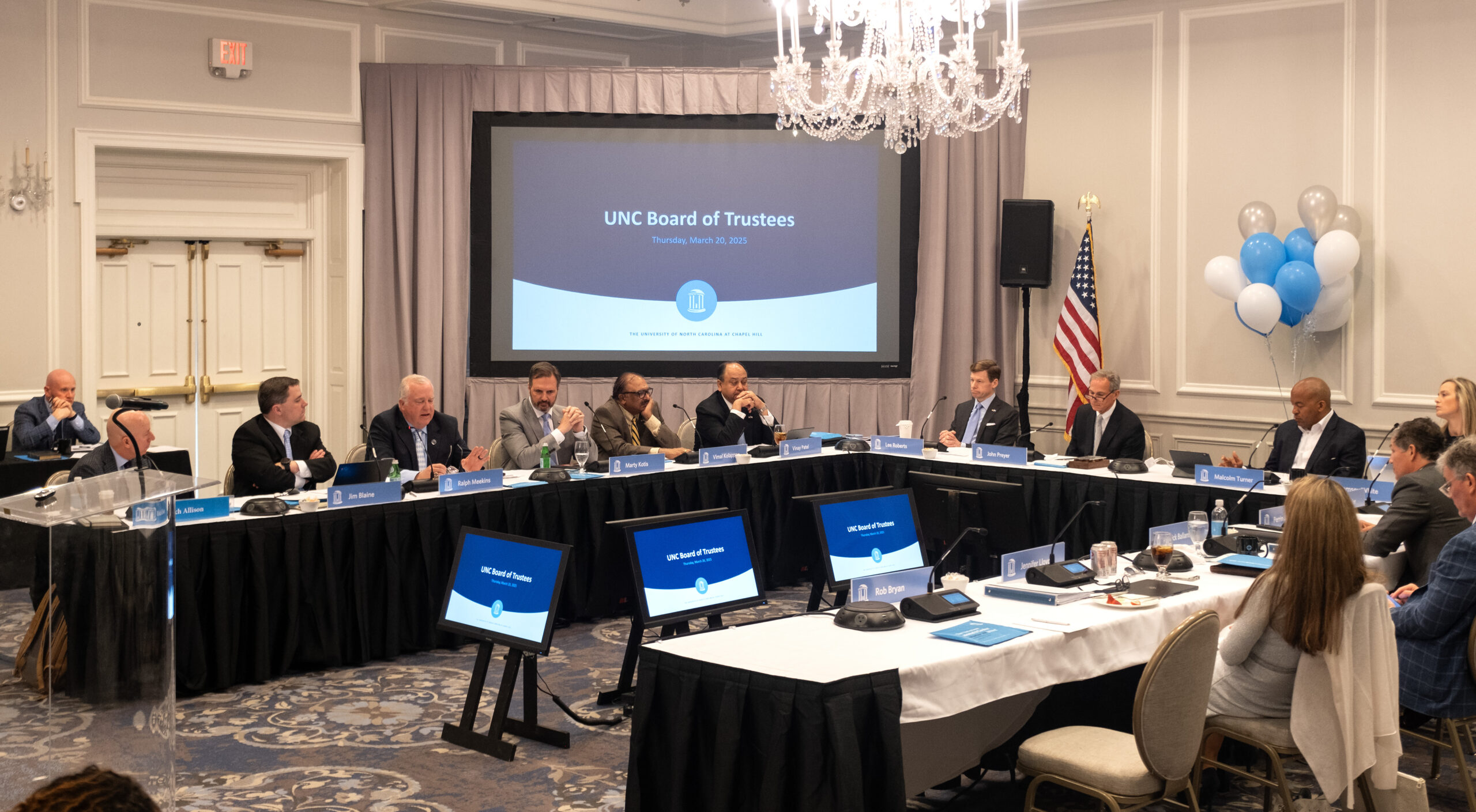
The UNC Board of Trustees meet in the Carolina Inn for their full board meeting on Thursday, March 20, 2025. (Photo via Jon Gardiner/UNC-Chapel Hill.)
Trustee Perrin Jones, who has led similar efforts by the board to encourage freedom of speech, said he was “proud of the university for having taken this stance” with its resolution. Referencing the trustees’ adoption of the Chicago Principles on Academic Freedom, the university’s system’s efforts rolling back diversity and equity policies in favor of “institutional neutrality,” and banning mandatory diversity statements in their admissions process, he said Thursday’s statement further touts UNC’s free speech efforts.
“This resolution is an excellent coda to that philosophical work,” said Jones. “It sets clear expectations for behavioral standards and clearly defines consequences for people that can’t live up to those standards.”
Critics of the trustees actions’ have pointed to promoting certain subjects or types of speech over others — like what trustees discussed with the creation of UNC’s School of Civic Life and Leadership in 2023, which Kotis referenced in his comments Thursday. Trustee Ralph Meekins shared his reservations about the resolution during committee meetings the day before and, although he voted to approve the statement, took time to voice what he deemed a key clarification. Meekins, one of the more senior trustees, said his concern stems from campus groups feeling alienated by the resolution’s singling out of opposition to antisemitism. He said while the measure is meant to take a stand against all hate speech, he referenced the importance of acknowledging the perception of the trustees making it now with the recent events around campus and globally.
As an example, Meekins recalled how 11 years ago, the campus community was particularly sensitive to anti-Muslim hate speech following the murder of dentistry student Deah Barakat, his wife Yusur Abu-Salha and sister-in-law Razan Abu-Salha. He added, like at that time, his belief that it is important to distinguish that social identity groups are not being passed over in favor of others with this statement.
“The only reason I spoke out against it then and I’m saying something now,” concluded Meekins, “is because this resolution… I don’t want anyone to take it as anything other than the fact that we need to do what we can as citizens of our university to stop hate speech, to keep it from happening, and to keep our students safe — regardless of which side of any issue you’re on. And that if you do break the law, there are going to be consequences and we believe that there needs to be.”
Kotis followed up Meekins’ comments by pointing out Title IX was modified in 2019 by an executive order to include antisemitism, and said the phrasing of the resolution is not a direct response to recent events and more so to be in compliance with that order.
Pro-Palestine protests against have continued to be held during the current academic year, including one event on Wednesday roughly when the trustees’ bi-monthly meeting began. Debate over such protests has risen again with the arrest and attempted deportation of former Columbia University graduate student Mahmoud Khalil, and the Trump administration’s commitment to deporting immigrant students or punishing universities that led campus protests against Israel’s retaliation in Gaza to Hamas’ Oct. 7, 2023 attack on Israeli soil.
To read the full resolution, titled “Upholding Campus Safety, Compliance and Federal Funding,” click here. The full Board of Trustees meeting from Thursday can be watched on the university’s YouTube channel.
Featured photo via Rafael Linhares.
Chapelboro.com does not charge subscription fees, and you can directly support our efforts in local journalism here. Want more of what you see on Chapelboro? Let us bring free local news and community information to you by signing up for our newsletter.

